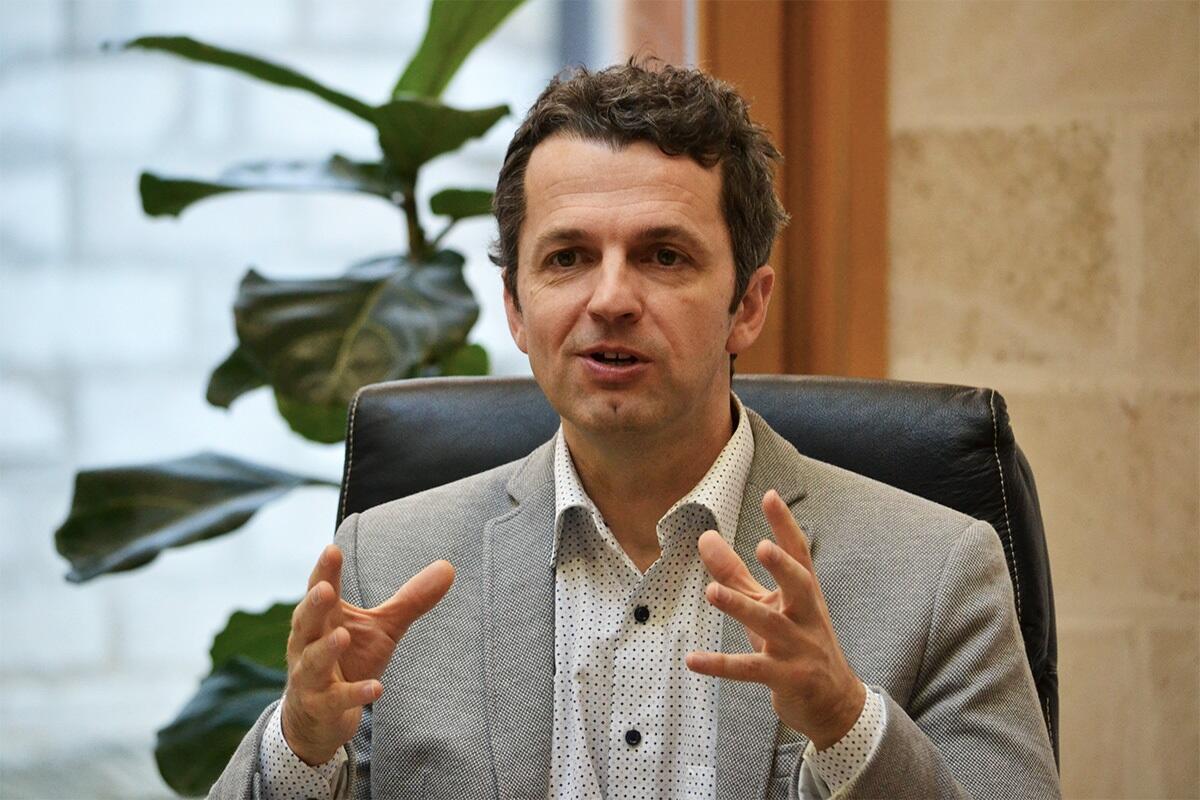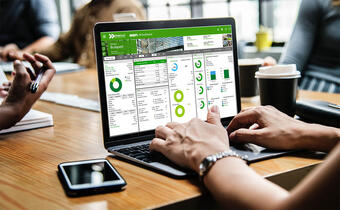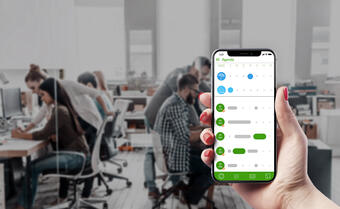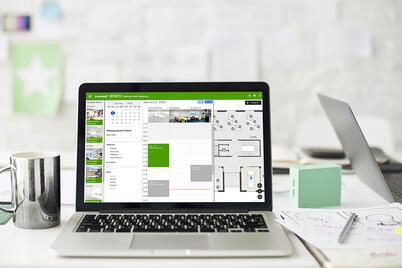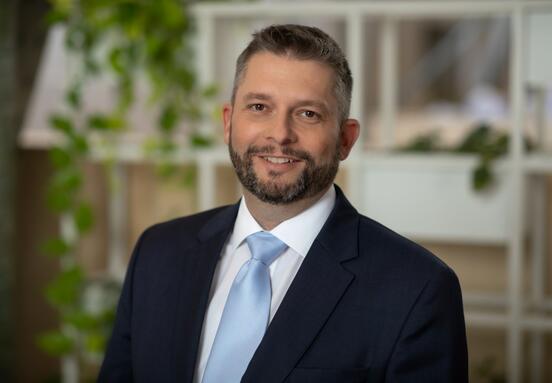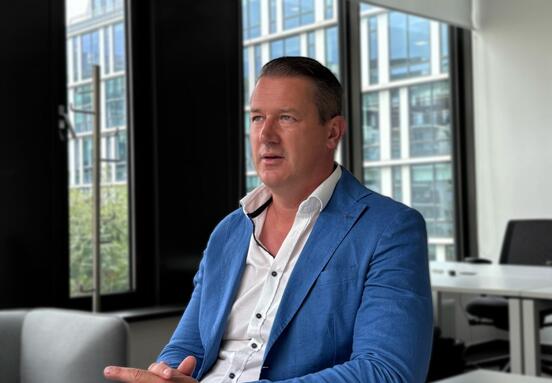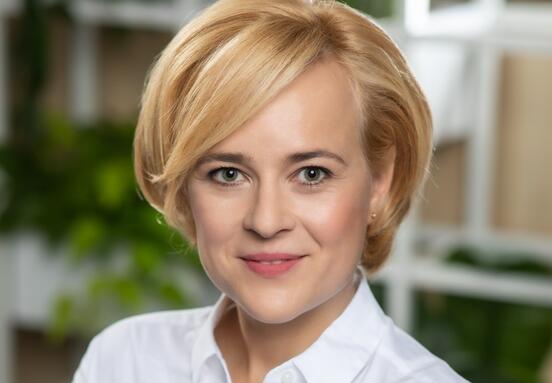According to Peter Homonnay, managing director of Invensol Hungary Ltd., those who have ever used a mobile phone don’t need to be taught how to use the SAM application, which was developed by the company. The desk booking, asset managing and FM Ticketing modules provide benefits for tenants and landlords as well as employees working in the building. According to the expert, financial advantages are already measurable during the first week of introduction: office occupancy can grow exponentially, furthermore, by using the software the system of flexible seating is accepted more easily by employees, when no one has a fixed desk in the office anymore. How can the app keep employees, who should pay into the human bank account and why is it advantageous for everybody? – among other things, we discussed these topics with Peter.
Based on the slogan of invensol.hu, the application you developed – SAM, i.e. Space and Asset Manager – is more than a simple desk booking app. What else does it offer?
This is a ready-to-use product. However, its main feature is that it can be customized personally as well as corporately. As a "zero" step we gather information to optimize the application. Besides analyzing floorplans and details about the infrastructure we look into who work with each other, when and how they do this. This is all carried out through personal interviews, i.e. “live”. Organizational structure is important, but chemistry is perhaps more relevant: who need to see each other physically, and for whom is it enough to limit their communication to emails only. The SAM software has a modular structure and desk booking is just one of these modules.
Open offices are really popular among tenants and landlords, because they are relatively easy and fast to setup, they are flexible and cost-efficient. What’s more, it’s unlikely that all employees are present in the office at the same time. Therefore, it’s superfluous to lease an office that provides space for all employees. Planning with an 85% occupancy is more than enough, others are on vacation or are negotiating somewhere else, etc. At first, you might think that it is enough for everyone to choose a desk for the day upon arrival, this is the classic 'free sitting' system. At the same time, many employees feel resistance towards a state of continuous fluidity, wanting a fixed place to work at.
I can give you several terrible examples of the ‘free seating system’: the employee arrives at the office, walks around looking for a free desk for 20 minutes, ending up with his laptop in the coffee shop. ‘Free seating’ can also be implemented in a better, user-friendly way.
The SAM system was developed to solve this kind of situation, making it possible for the employees to book a desk and/or a parking space at the work place on the same day or even weeks ahead with a desktop browser or a mobile application on the way.
Besides SAM being a customized solution – i.e. taking into account the local circumstances –, it is a user-friendly and enjoyable application. With the phone app I can decide on the road when, where and with whom I would like to work today. At my favorite desk or maybe near my current project team? What’s more, I came by car today, so I would like to book a parking space, too. Basically, it takes 5 clicks to enable these features in the system, but I don’t want to evade your question:
SAM is also a change management tool: it actively supports the introduction of flexible working methods at existing offices, or when a company moves to a new office building, it really matters how many square meters they will lease, as fees are calculated based on office sizes and costs are increasing continuously. This way, companies could easily save thousands of euros as the occupancy of the "fixed workstation" offices can be increased from 60-70% to 90%. As a result, you can provide seats for more employees or you can reduce the size of the office – it depends on how you look at it.
SAM will help you make this process a joyful one instead of a nuisance. On the other hand, the HR team is aware of the essence of "human bank accounts": if you want to withdraw something, you need to give something first. In practice, if you ask your colleagues to be partners in changing to flexible working, and for that reason you take their fixed desks, in return you could offer the option of home office for 1 or 2 days per week. Flexible working is a win-win solution: employers’ utilization of their office spaces will be more efficient, and employees become more motivated. Obviously, cost management is important, but a comfortable and flexible working environment plays a crucial role in retaining the workforce. If you properly combine the system of flexible seating with the option of working from home, you could significantly reduce the staff turnover. These days, when finding qualified workforce is just as difficult as finding a fully equipped A-class office, it's very important what you see when you look into the eyes of your colleagues on a Monday morning. We support this trilateral deal with our office management solution from the background.
Your homepage launches in English by default and reflects the latest overseas features. I assume this is not a coincidence.
The most important office market trends come from Western Europe, so obviously, we keep track of these foreign markets. In our opinion, a competitive company – with more than 200-300 employees – cannot allow spontaneous desk booking, parking booking, not to mention our asset management tool. It's simply worthwhile to invest in such a system, as the advantages become clear already during the first week. What we see is that it is often the negative influencers who change their minds first: they admit that using a user-friendly app makes their life easier.
You mentioned 200-300 employees. Does it mean that below this number it is not worthwhile considering the implementation of SAM?
As SAM is not a "box-product", but a customized software service, it has a maintenance cost. Therefore, it works more cost efficiently at bigger companies. However, we will introduce a "lite" version soon, where the user can upload floorplans individually and manage the office space without external support. This version will fit small and medium-sized enterprises' budgets as well.
But no matter how big the company, there are amazing lessons to be learned – to say the least – if we analyze who uses what and when, whether it is a desk, a computer or a parking space. Especially before moving from one office to another it is suggested to consider what the company really needs, what it is that they definitely need to pay for.
The next stage of development will be when not “only” the software will show who uses what, when and where, but you will also receive information coming from sensor measurements. Has the meeting room been booked, but have the lights not been switched on at all? In this case, there is no need for heating and the meeting room can be marked as "available" again.
I think that we have reached a point, where competitiveness is not measured by the hardware – the building itself –, but instead by software support, user-friendly applications as well as customized and flexible services. I do believe that in a couple of years there won't be any responsible employer or facility manager, who won’t use an office management solution like the SAM software.
Irodakereso.info
